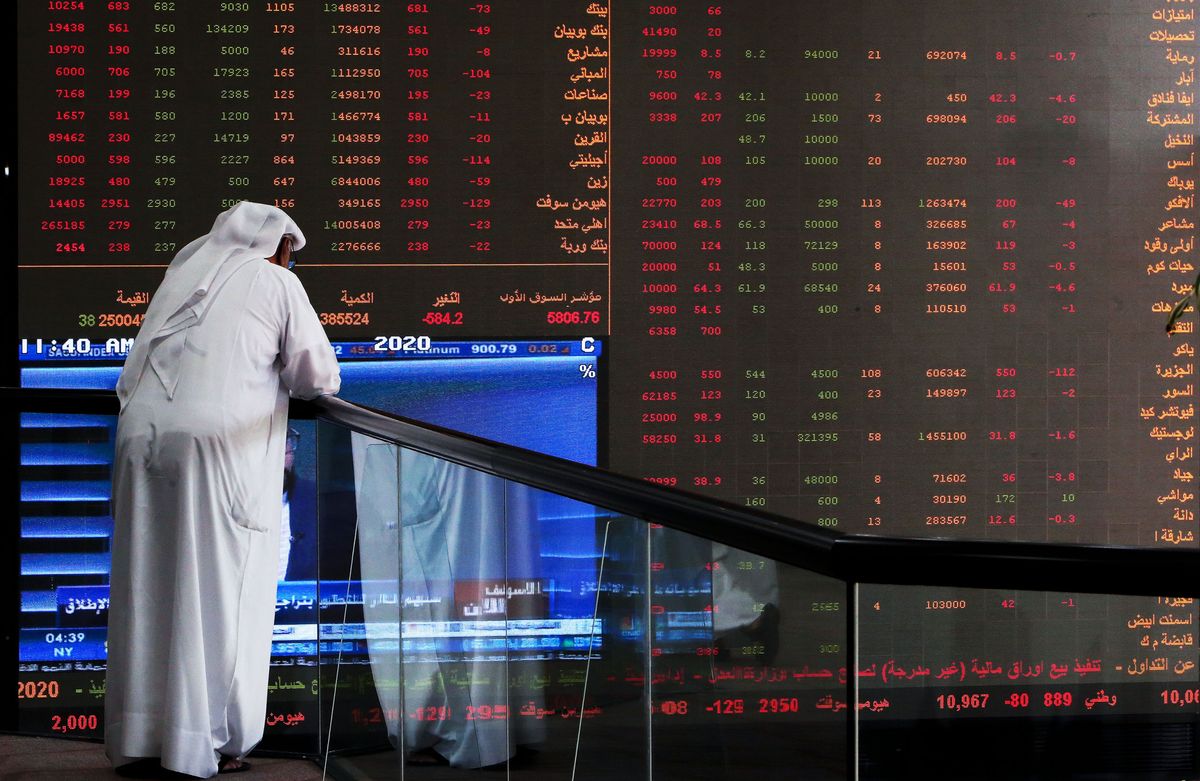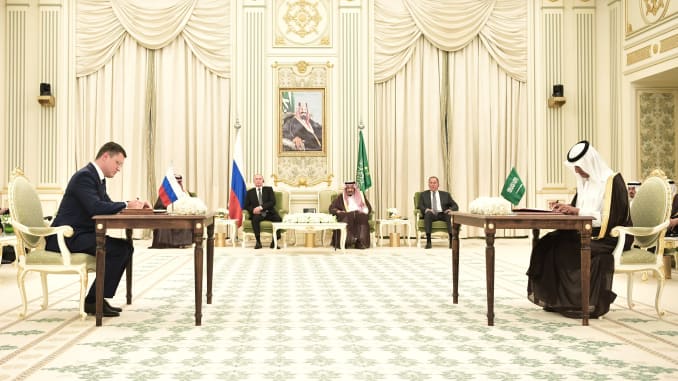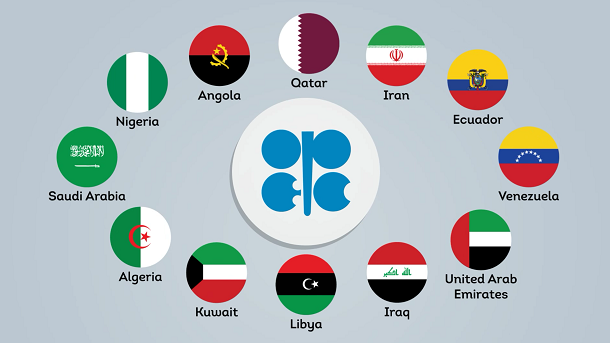Russia and Saudi Arabia’s price war over oil – Here’s what you need to know

A few minutes every morning is all you need.
Stay up to date on the world's Headlines and Human Stories. It's fun, it's factual, it's fluff-free.
Due to a price war between Russia and Saudi Arabia, the price of oil has hit a 17-year low in the midst of the COVID-19 pandemic.
As a member of the Organization of the Petroleum Exporting Countries (OPEC) and the second largest oil producer in the world, Saudi Arabia’s actions have global ramifications.
The oil price war

In early March, Saudi Arabia initiated an oil price war with Russia that has had global repercussions. As with much of what is happening in the world these days, this price war is rooted in the coronavirus pandemic that began in China.
In January, before the spread of COVID-19 had become a global concern, the virus was already having a devastating effect on China. With many of the country’s citizens on lockdown, China began turning away oil tankers as the country’s need for oil dropped.
This overall drop in demand made Saudi Arabia’s oil less valuable.
Despite this drop in demand, Saudi Arabia, a member of OPEC, decided not to reduce production. The market was flooded with cheap crude oil as a result.
Saudi Arabia’s actions were in response to Russia, which is not part of OPEC, refusing to lower production on its end.
Saudi Arabia’s actions were intended to force Russia to renegotiate on production. Instead, both countries have stuck to their guns, causing oil prices to plunge even further.
As of Wednesday, March 18, oil was selling for around US$22.50 a barrel (42 gallons), down from over US45.00 a barrel two weeks ago, and a year-to-date high of over US$63.00 in January.
Oil saw its steepest drop on March 8, falling 24% in one day. That is the worst drop for oil prices since the first Gulf War in 1991.
Russia and Saudi Arabia are two of the top three oil producing countries in the world, behind only behind the United States. Together, the two countries produce nearly 25% of the world’s oil.
What is OPEC?

The currently 15-member OPEC was founded in 1960 with five initial countries: Iran, Iraq, Kuwait, Saudi Arabia and Venezuela. Together, the members of OPEC negotiate oil prices in order to ensure that the global oil market remains stable.
Due to its outsized influence on the price and production of oil, decisions made by OPEC can have major ramifications on oil prices worldwide, even for non-members of OPEC.
For instance, in 2014 the organization decided not to reduce oil production from 30 million barrels a day to stop a decline in oil prices. As a result, oil prices dropped even more steeply, even in the United States, despite the US having its own oil production.
The pros and cons of lower oil costs
In the summer of 2016, the world experienced another oil price crash that had a dramatic effect on the global economy.
The price drop occurred in the weeks prior to Labor Day weekend, which resulted in cheaper gas prices for travelers over the weekend. While most people feel that a lower gas bill is a good thing, drops in oil prices have negative effects across industries.
Oil companies around the world laid off hundreds of thousands of workers in 2016. In the US, where oil companies are major employers in many states, those layoffs and lower wages can hurt local economies.
To help stave off a global recession in 2016, the OPEC countries agreed to cut production of oil by 1.2 million barrels a day. Russia also agreed to cut production by 300,000 barrels a day.
Now, at a time when people aren’t traveling because of COVID-19, few people are benefiting from the lower gas prices. However, the oil industry’s losses are only compounding the pain the economy is facing as Wall Street faces weeks of uncertainty and crashes.
Is America energy independent?
US presidents have been urging that America become energy independent for generations. To be energy independent means to not be reliant on oil from other countries, either because the US produces enough for itself, or because it has found other sources of energy.
President Richard Nixon spoke about the need for energy independence in the 1970s. President George W. Bush signed the Energy Independence and Security Act of 2007. In a speech in 2006, then-Senator Barack Obama spoke on how the US’s dependence on oil from other countries was not just a national security threat, but a leading cause of climate change.
During his 2016 campaign for president, Donald Trump outlined an “America First” plan for energy independence, with a specific focus on ending the US’s dependence on OPEC.
Since 2005, the US has relied less and less on imported oil.
However, despite decades of presidential warnings about foreign oil dependence, the country still imported nearly 10 million barrels a day in 2018.
[article_ad]
Have a tip or story? Get in touch with our reporters here!




Comments ()